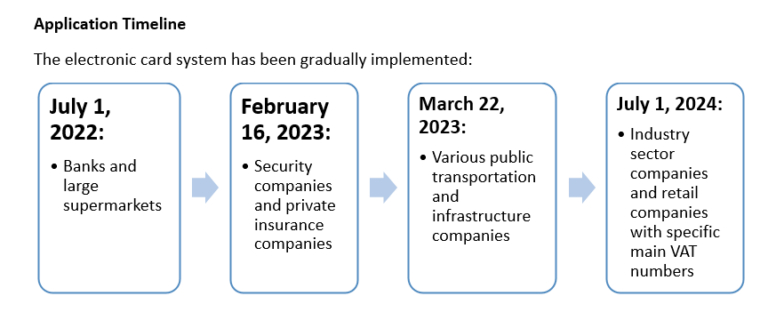As of July 1st, Greece has introduced significant changes to the employee electronic card system through a new circular issued by the Ministry of Labor and Social Affairs. This initiative aims to digitize and streamline administrative processes, improve transparency, and enhance labor management efficiency. The circular provides comprehensive guidelines affecting both employers and employees. This article outlines the key aspects and implications of these changes.
Overview of the New Circular
The circular mandates the adoption of the electronic card system for all employers in Greece, regardless of size or industry. Key elements include:
- Mandatory Implementation: Required for all public and private sector organizations.
- Enhanced Tracking: Accurate tracking of working hours, including breaks and overtime, to ensure fair compensation.
- Real-Time Monitoring: Real-time data provision to the Ministry of Labor for better regulation enforcement.
- Data Privacy and Security: Strict guidelines to protect employee data and comply with GDPR.
Key Features of the Employee Electronic Card
The system incorporates features to streamline labor management and enhance transparency:
- Digital Record Keeping: Maintains digital records, replacing paper-based ones.
- Integration with Payroll Systems: Ensures accurate and timely wage payments.
- Accessibility for Employees: Secure online access to personal working hour records.
- Automated Reporting: Generates reports for employers and the Ministry of Labor.
Implications for Employers and Employees


Flexible Declaration of Working Schedules
From July 1, employers already using the electronic card system can choose not to pre-announce changes to working hours or overtime. Instead, they can opt for accumulative submission by declaring this choice by the end of the current month. This option must last at least one calendar month, but employers can revert to pre-announcement anytime.
*Example: To use accumulative submission for July, an employer must declare this choice by June 30. Any changes in July would then be declared by the end of August. Reversion to pre-announcement can occur monthly.
In a nutshell, the new circular on employee electronic cards marks a significant step towards modernizing labor management in Greece. Key features such as real-time monitoring, data privacy, and integration with payroll systems are designed to streamline administrative processes and enforce compliance with labor laws.
The content of this article is intended to provide a general guide to the subject matter. Specialist advice should be sought about your specific circumstances.

